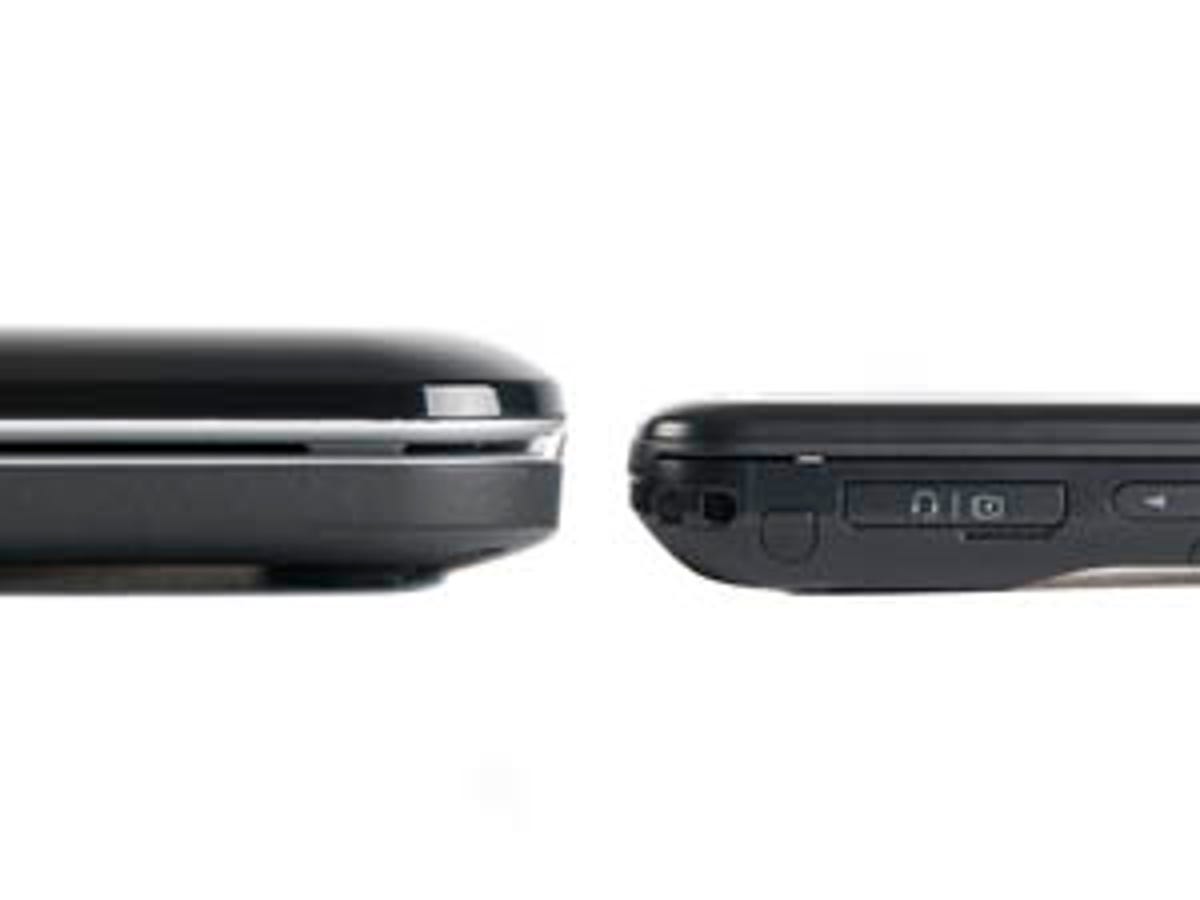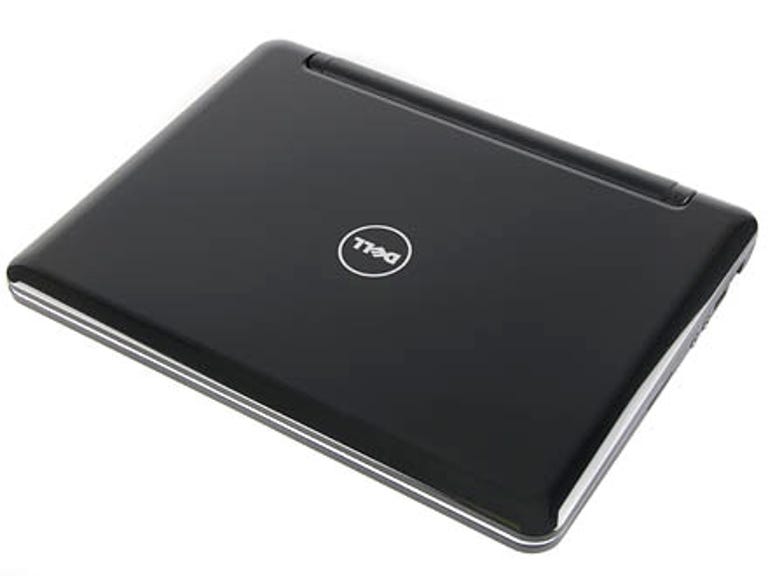 Why You Can Trust CNET
Why You Can Trust CNET Dell Inspiron Mini 12 review: Dell Inspiron Mini 12
Dell pushes the netbook envelope to the limit with the Mini 12, a 12-inch ultraportable laptop that uses low-power components and open-source software to reduce costs. It's thin, light and simple, but it's underpowered and could do with a better battery
Traditionalists will tell you that netbooks are super-small, super-light versions of their ultraportable cousins. The folks at Dell, however, disagree. Its new Inspiron Mini 12 combines a large 12.1-inch display with traditional netbook-style components, meaning it straddles the fence between the two classifications. Does this progressive design have a place in your shopping cart? Or is this £329 machine taking the market somewhere it doesn't need to go?
The Good
The Bad
The Bottom Line
Design
The Mini 12 doesn't look like your average netbook, mainly because it's so big. It measures 299mm by 229mm by 28mm, so it's in a similar size bracket to machines like the MacBook Air or Samsung X360 -- so slightly more awkward to carry than traditional netbooks.
That's not to say the Mini 12 is unwieldy. It's exceptionally thin at the sides and tips the scales at a mere 1.2kg, so it's actually lighter than 10-inch netbooks such as the Samsung NC10 and Eee PC 1000, both of which weigh 1.4kg. Carry the device in a bag and you'll barely notice its presence.

Bizarrely, Dell has chosen not to utilise the extra space afforded by the Mini 12's wide chassis. Sure, it packs three USB ports, Ethernet, mic and headphone jacks, plus an SD card reader, and there's even a 1.3-megapixel webcam above the screen, but that's all par for the course on a netbook. Depending on your viewpoint, you'll either think it's perfectly minimalist, or merely rather bland.
Dell has sensibly fitted the Mini 12 with a large mouse trackpad. While its keyboard is larger than those on many of its rivals, however, it's certainly not as comfortable. Our main concern was the lack of travel in each key, and their clunky, cheap feel. The full-stop and backslash keys are particular bones of contention -- attempts to press these usually involve mashing at least one other adjacent button. This, as you can imagine, is particularly infuriating when entering URLs -- not ideal on a netbook.
Features
The Mini 12 comes in two guises. The first is an Ubuntu-equipped model that uses a 1.3GHz Intel Atom Z520 CPU -- a cheaper, slower alternative to the more commonplace 1.6GHz Atom N270 seen in models such as the Eee PC 1000. This model also uses 1GB of RAM and a paltry 40GB hard drive, all for £329.
The second model ships with Windows Vista Home Basic and uses the slightly quicker Atom Z530 CPU, which runs at 1.6GHz. This CPU is theoretically superior to the N270, as it has a slightly lower thermal design power (TDP), which should promote longer battery life. This model also packs 1GB of RAM and a more substantial 80GB hard drive, all for £399.
The two are identical in all other areas. They share the same integrated Intel Graphics Media Accelerator 500, so they're both pretty useless -- the slower Ubuntu version especially -- at running graphically intensive applications.
Their 12.1-inch WXGA 1,280x800-pixel displays are pretty good, though. They offer slightly more screen real estate than the 1,024x600-pixel screens seen on most other netbooks and they're physically larger, so they're more comfortable to look at for long periods. The only slight drawback is that the backlight is uneven, so some areas of the screen will appear lighter than others -- an effect that becomes more noticeable when watching movies with dimly lit scenes.
No self-respecting netbook would be caught dead without some form of wireless connectivity and the Mini 12 is no different. It ships with an 802.11b/g Wi-Fi adaptor that allows connectivity to the most common form of wireless network. Unfortunately, it's not compliant with high-speed 801.11n Wi-Fi. That in itself isn't the end of the world, but those who connect their Mini 12 to their existing 100Mbps 802.11n network will force the entire infrastructure to revert to 54Mbps 802.11g.
The final piece of bad news is that the Mini 12 ships with a relatively modest 2,200mAh battery, which doesn't instill us with confidence about the machine's ability to go long periods away from the mains. For reference, the Eee PC 901 ships with a 6,600mAh battery.
Performance
Dell sent us the Ubuntu version of the Mini 12 for review. This, as
we've already stressed, uses the 1.3GHz Intel Atom Z520 CPU and 1GB of
RAM. During our time with it, the machine coped fairly well with
mundane desktop activities, launching and running productivity
applications without batting an eyelid.
It became unstuck, however, when asked to perform more demanding tasks. We were particularly amazed when it failed to run Flash videos in full screen at the full frame rate. BBC iPlayer videos, for example, juddered continuously, skipping more frames than we could tolerate. Given that the Mini 12 is being sold as a netbook and is incapable of performing one of the most popular Net-related functions, we'd suggest you think twice before making a purchase.
Our final gripe was battery life. As suspected, the low-capacity battery was only good enough to power the Ubuntu edition of the Mini 12 for 2 hours 37 minutes of continuous Web-connected usage. Battery life on the Vista edition may be slightly different, as Vista has different power-management capabilities, but we're willing to bet that it too would be the wrong side of mediocre.
Conclusion
The Mini 12 might appeal to users who want a netbook with a slightly
larger display. We'd think twice about buying the Ubuntu version,
however -- it's simply too slow. The Vista model is noticeably quicker,
but we can think of half a dozen other netbooks that offer better
features and value for money. We'd suggest you start with the stylish,
but slightly more expensive, Eee PC S101 and the much cheaper MSI Wind.
Edited by Nick Hide
